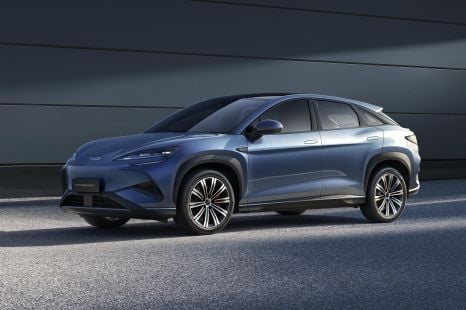

Damion Smy
BYD is outselling Tesla in the EV sales race
8 Hours Ago
Washington's International Council on Clean Transportation urges Albanese government to hasten proposed CO2-cutting vehicle regulations.

Senior Contributor
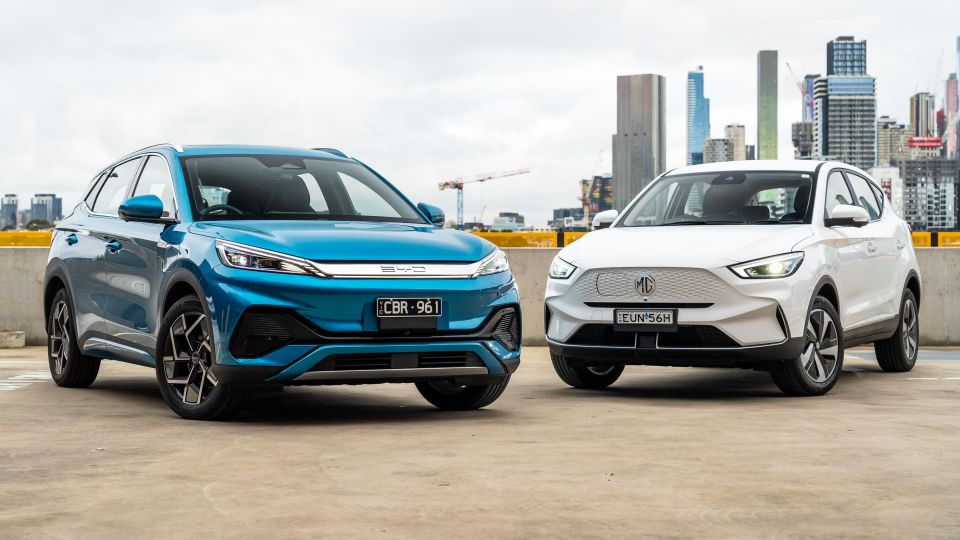

Senior Contributor
The Washington-based International Council on Clean Transportation (ICCT) has joined a chorus of industry voices calling on Australia’s federal government to legislate fuel efficiency or CO2 emissions targets pronto.
The ICCT nonprofit research body said this week that by adopting emissions standards like those in the European Union, the US and New Zealand, Australia could “almost fully” decarbonise its light-duty vehicle (LDV) fleet by 2050, nearly in line with net zero targets.
Only a few major vehicle markets lack established compliance requirements for car CO2 emissions or fuel efficiency, and Australia is one. It’s regularly cited as a key reason why EVs and hybrids are in short supply, given such regulation acts as a pull factor.
In short, car-makers prioritise exports of in-demand electric and hybrid vehicles (all cars sold here are now imported) to markets where sales are driven hard by legislation that fines them for exceeding fleet-wide CO2 emissions.
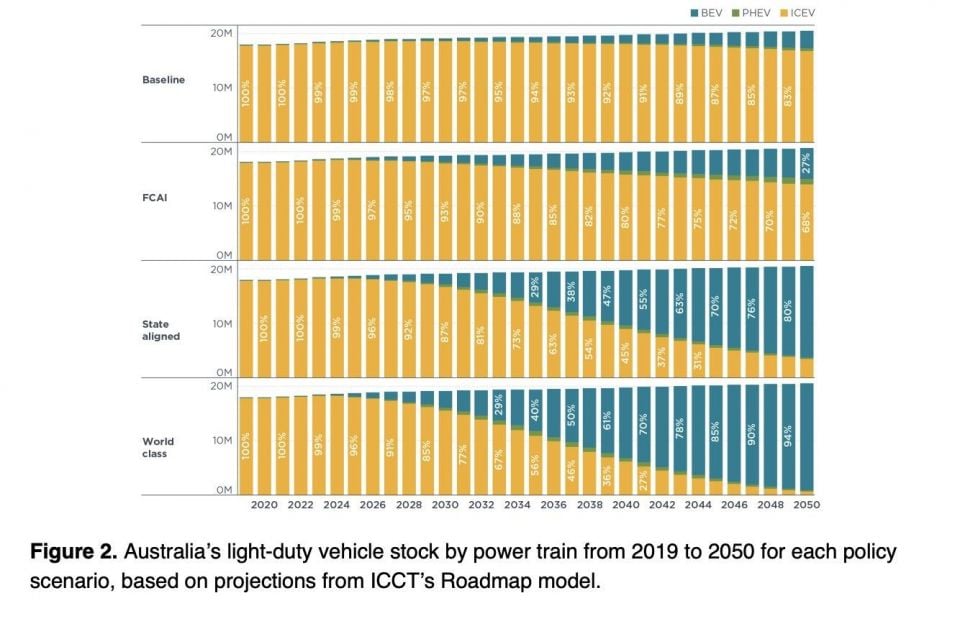
Emissions from passenger cars and light commercial vehicles account for nearly two-thirds of Australia’s transport emissions, which were approximately 12 per cent of this country’s total greenhouse gas emissions in 2021, according to Australian government estimates.
Said ICCT report found that “stringent, world-class standards” starting in 2024 could reduce well-to-wheel CO2 emissions from the light duty vehicle (LDV) fleet in Australia by 95 per cent in 2050 compared to the 2019 figures.
Aligning with these standards would essentially mean all new LDVs sold in Australia from 2035 would need to come with zero-emission drivetrains such as a battery-and-motor, or hydrogen fuel-cell.
Such standards also correspond to a fleet-average CO2 emissions target of 50 grams per kilometre from 2030, a 72 per cent reduction on 2019.
We’re a fair way off that still. The majority of Australia’s car brands failed to hit their voluntary specific CO2 emissions targets in 2021 as set by the Federal Chamber of Automotive Industries (FCAI) lobby group, though passenger vehicles sat ahead of the targeted reduction curve.
MORE: Emissions targets explained, Q&A with FCAI chief executive Tony Weber
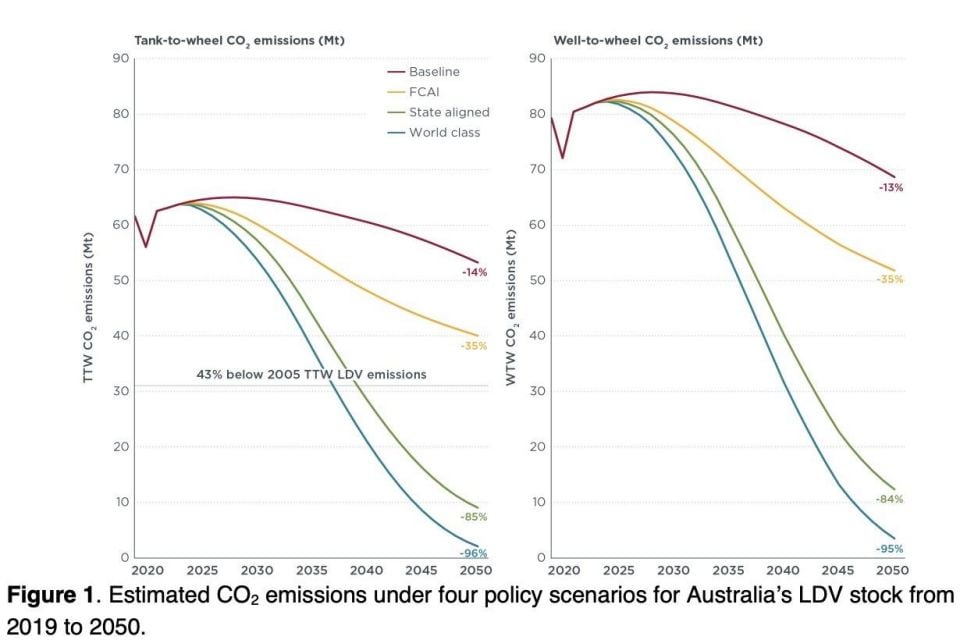
Average listed CO2 emissions of vehicles belonging to the scheme’s MA category (passenger vehicles and light-duty SUVs) was 146.5 grams per kilometre, and vehicles in the MC+NA category (light commercials and heavy SUVs) averaged 212.5g/km.
Beyond this, the ICCT’s analysis found that implementing “a less ambitious national standard” that matches existing state-level EV targets – State and Territory governments have their own EV goals and rebates separate to federal programs – would still cut well-to-wheel CO2 emissions from the LDV fleet 84 per cent lower by 2050.
“It’s abundantly clear that emission standards would be effective in driving significant reductions in CO2 emissions from Australia’s fleet, and they can promote both electric vehicles and emissions reduction from internal combustion engine vehicles (ICEVs),” said the ICCT’s passenger vehicles program lead and co-author of the paper, Zifei Yang.
The study also analysed likely impacts of the controversial voluntary CO2 emissions targets set by Australia’s Federal Chamber of Automotive Industries (FCAI), the car companies’ lobby group which sets its own CO2 targets in lieu of any binding ones.
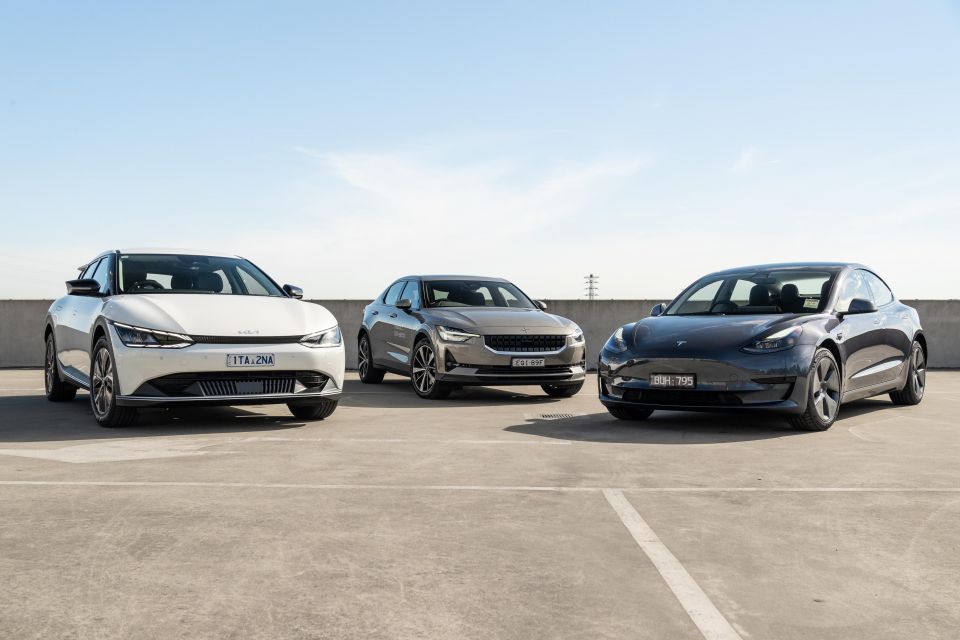
These are the same non-binding targets described in the ninth paragraph of this story.
ICCT’s Roadmap model projections suggest that these targets, under their maximum stringency for new LDVs without adjusting for weights and credits, would allow petrol and diesel cars “to dominate Australia’s vehicle stock even in 2050”.
“Preventing any backsliding in ICEV emissions performance is important because decarbonizing transport is a key part of achieving Australia’s 2050 net-zero target,” contended ICC associate researcher and the study’s lead author Tanzila Khan.
“We urge policymakers to adopt the world class standards starting no later than 2024.”
The FCAI peak lobby for Australia’s car brands has been pilloried for pitching a fuel efficiency and CO2 emissions-reduction scheme that’s less demanding on its members than similar policies in Europe or the United States.
Yet it also welcomed the federal Labor Government’s tougher emissions reduction target set in June this year – 43 per cent by 2030 – and says it actually wants it to go harder in enforcing CO2 cuts specific to the light vehicle sector.
MORE: Derided FCAI supports ‘courageous’ Government EV push
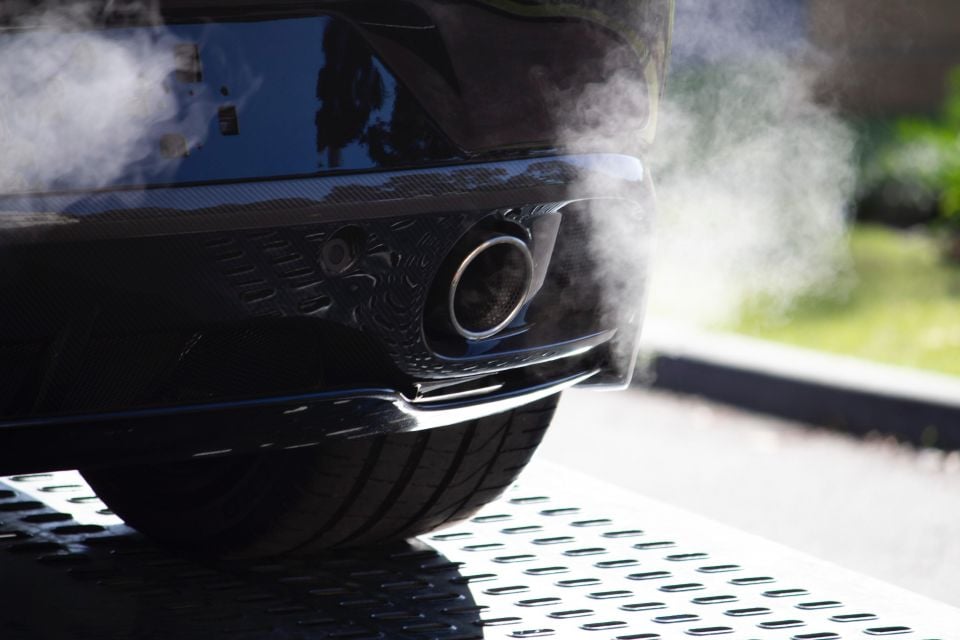
Background
The federal government said in November it had received more than 500 submissions to a discussion paper designed to shape the country’s first, long-awaited National Electric Vehicle Strategy.
The newly-elected ALP Federal Government says it wants Australians to have a greater choice of affordable electric vehicles (EV) after years of inaction out of Canberra.
The core policy to be addressed is the belated introduction of fuel efficiency standards and the application of a binding tailpipe CO2 reduction scheme, which the car industry and other stakeholders have long said is essential to unlock greater EV supply.
According to many industry stakeholders this is long overdue.
Apart from Russia, Australia is the only OECD country to not have, or be in the process of developing, fuel efficiency standards of this type.
“The lack of such standards in Australia is cited as one of the factors impacting the supply and cost of EVs,” contends Climate Change and Energy Minister Chris Bowen. “Why? Because while Australia doesn’t show leadership, manufacturers prioritise markets which do.”
The Labor Government has since secured the support of the Australian Greens and Senate independent David Pocock for its electric vehicle (EV) incentives bill, though not without a couple of amendments.
As reported in April, a majority of Australia’s car brands failed to hit their voluntary specific CO2 emissions targets in 2021, though passenger vehicles as a whole are ahead of the targeted reduction curve.
MORE: Australia’s best-selling EVs in the first half of 2022 MORE: Why the car lobby wants more CO2 regulation from new government MORE: What electric car buyer incentives are offered across Australia? MORE: National EV Strategy: Government releases consultation paper MORE: Australian Government to introduce electric vehicle incentives MORE: Dumping ground no more? Australian Government’s affordable EV push


Damion Smy
8 Hours Ago
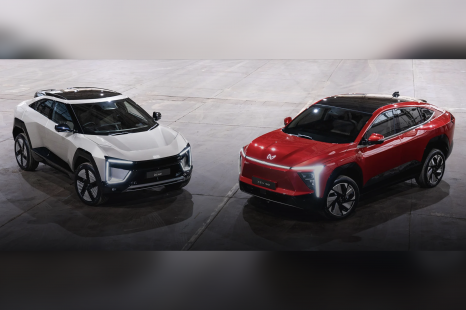

Ben Zachariah
9 Hours Ago
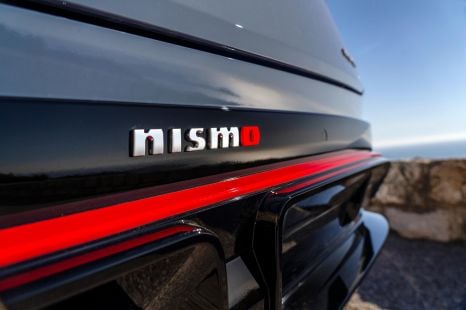

Damion Smy
10 Hours Ago
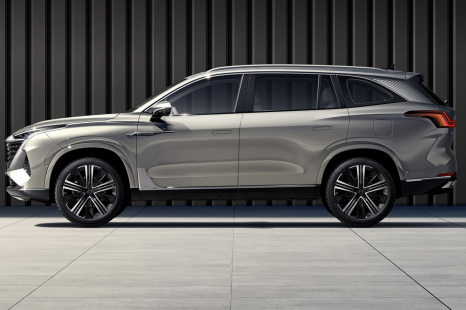

CarExpert.com.au
11 Hours Ago
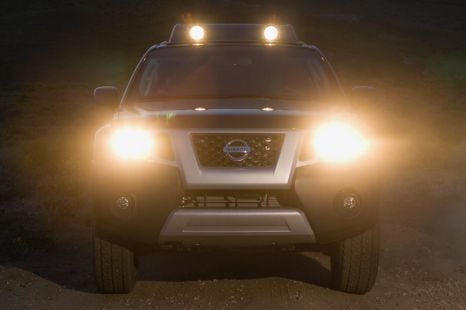

Ben Zachariah
12 Hours Ago
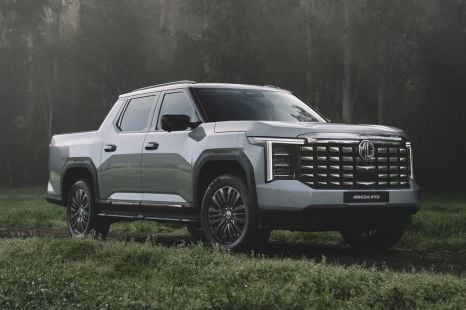

Damion Smy
12 Hours Ago